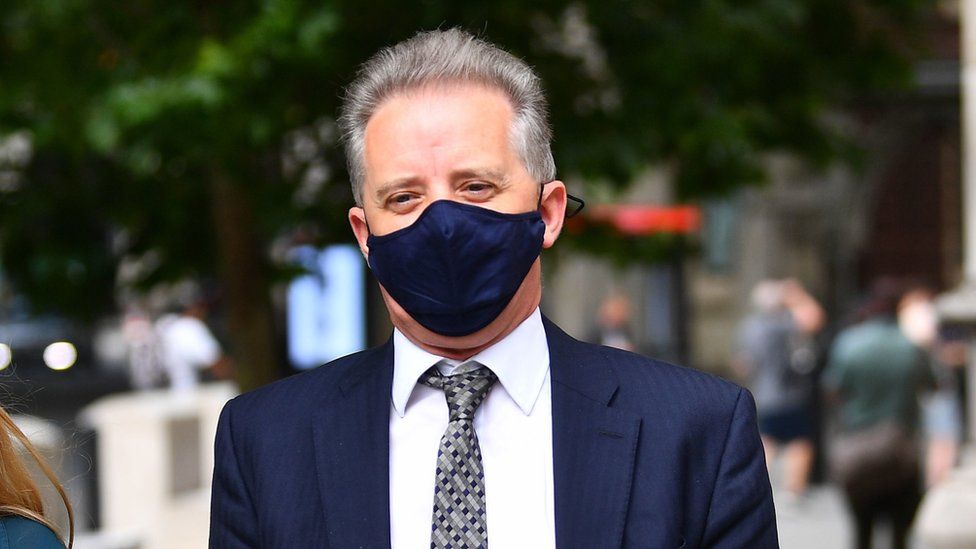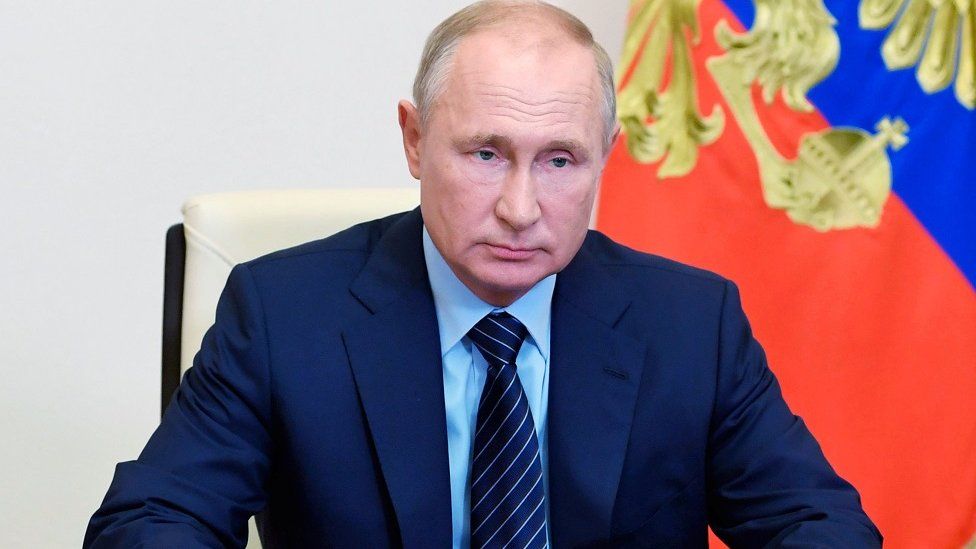Christopher Steele, who compiled the Trump-Russia dossier, says Russia and China are concerns.

image copyrightPA Media
The UK urgently needs new legislation to restrict foreign influence over its government and institutions, according to ex-MI6 officer Christopher Steele.
Mr Steele, who compiled a dossier on former US President Donald Trump’s ties to Moscow, told the BBC that Russia and China were the greatest concerns.
He called for those working on behalf of foreign countries to be registered, like they are in the US and Australia.
The Home Office says such a scheme will be part of forthcoming legislation.
Mr Steele told the BBC: “The word is out that that we’re a bit of a soft touch – that we don’t have regulators with teeth and we don’t have legislation which is up to date and fit for purpose.”
The former spy was behind the so-called Trump-Russia dossier, which was released in 2017 and alleged that there had been collusion between Moscow and Mr Trump’s 2016 election campaign.
Its claims sparked controversy and lawsuits and Mr Steele remained unwilling to discuss it in detail with the BBC.
But he did warn that the UK was in a worse position than the US when it came to foreign influence on public life.
He said the US, unlike the UK, had the tools in the form of legislation to go after those secretly working on behalf of foreign nations. He pointed specifically to its Foreign Agent Registration Act, which has been the model for recent Australian legislation.
“We are way behind our allies,” he said.
The threat comes not from traditional espionage – undercover agents stealing secrets from governments – but from people who wield influence to serve the agenda of foreign governments without being open about it.
“There’s a lack of transparency in Britain about the way in which foreign actors, and particularly those emanating from authoritarian states, are exerting influence over our policies,” Mr Steele said.
Russia’s goals included lobbying to keep Russian individuals off sanctions lists and disguising who was behind particular businesses, he added.
He argued that China’s influence was more “diffuse” and concentrated in areas like academia. Mr Steele said there was a risk that if the UK became dependent on money from China in these areas, it would be less likely to criticise Beijing’s behaviour.
Some parts of the economy have become over dependent on foreign money, Mr Steele said, and professionals in the UK needed to be more diligent about knowing who their clients were.

image copyrightReuters
Last summer, a report from the Intelligence and Security Committee (ISC) on Russian activity in the UK called for new powers to counter the influence – which the government has said it is looking at.
Mr Steele argued that individuals working on behalf of foreign states should be required to register.
“When you talk about foreign agents in this instance you are not talking about people who are committing treason or selling secrets to the Russians or the Chinese. You are talking about their agents, in the sense of people who are pursuing their agenda in the UK for money,” he said.
This included PR companies, lobbyists, law firms and even, Steele acknowledged, private intelligence companies like his own if they carried out work on behalf of foreign governments.
He said the intention was not to ban lobbying on behalf of foreign governments – which can be legitimate – but to make it “transparent and accountable”.
Conservative MP Bob Seely issued a report last month for the Henry Jackson Society think tank calling for a Foreign Lobbying Act which would require foreign agents and their proxies to register.
Mr Steele, who said he had briefed MPs on the issues, said there needed to be criminal sanctions for failing to register – otherwise there would be a risk that any fine would be factored in as a cost of doing business.
The new Australian law, passed in 2018 amid concerns over Chinese influence, includes penalties of six months to five years in prison for failing to register or providing misleading information.
Mr Steele also thinks the definition of foreign agents needs to be broadly drawn to capture influence in areas like academia and the media – although he believes government and politics remain the top targets.
“Politics is the ultimate goal of the authoritarian states we’re talking about and their influence operations, because ultimately it’s governments that make decisions about legislation and it’s governments that make decisions about imposing sanctions,” he said.
The risk of not taking action, Mr Steele believes, is that influence will grow to the point where it prevents sanctions being imposed on Russia and China.
The former intelligence officer questioned why the ISC’s recommendations had not yet been implemented.
“I think it’s very urgent and I’m surprised, in a way, that the more hasn’t been done about it, since the ISC report came out,” he said.
Mr Steele said he was worried that a post-Brexit drive for investment would make it harder to clamp down on such activities, with risks for the integrity of the institutions.
“Eventually, in the long term, you will lose out because people will realise that your country has been compromised,” he added.
The Home Office said the government would introduce a foreign agent registration scheme “as part of forthcoming legislation to counter hostile activity by states”.
“This follows consideration of similar laws in like-minded countries including the US and Australia,” the statement added.